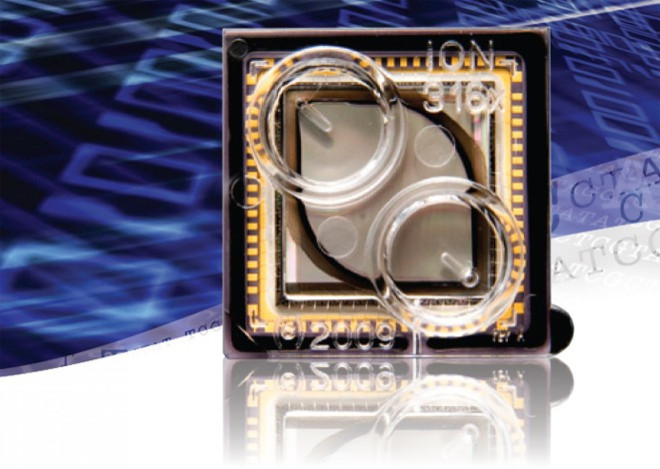Personal DNA Sequencing Machine One Step Closer

A new, low cost semiconductor-based gene sequencing machine has been developed and may unlock the door to advanced medicines and life itself.
A team led by Jonathan Rothberg of Ion Torrent in Guilford, Conn is working on a system which uses semiconductors to decode DNA, dramatically reducing costs and taking them closer to being able to reach the goal of a $1000 human genome test.
DNA sequencing and, more recently, massively parallel DNA sequencing has had a profound impact on research and medicine, the study reads.
Typical DNA sequencing machines use optical technology instead of semi-conductors. While fast, optical technology is expensive and complex.
The current optical based system costs around $49000 and is already on the market and being used in over 40 countries.
The team hopes that the new development will allow them to tap into ever growing computing power that gets cheaper and more powerful over time, essentially riding the backs of the $50 billion chip industry.
The reductions in cost and time for generating DNA sequence have resulted in a range of new sequencing applications in cancer, human genetics, infectious diseases, and the study of personal genomes,, as well as in fields as diverse as ecology, and the study of ancient DNA, the team said.
The semiconductor chips that are used cost $99 each and to sequence a human requires roughly 1000 chips. Even that is already down from the $250 price tag the chips use to carry.
Rothberg says that by 2013 even cheaper chips will let them sequence the complete genome for only $1000.
Although de novo (new) sequencing costs have dropped substantially, there is a desire to continue to drop the cost of sequencing at an exponential rate consistent with the semiconductor industry's Moore's Law as well as to provide lower cost, faster and more portable devices. This has been operationalized by the desire to reach the $1,000 genome.
The DNA sequencing can be completed within approximately two hours, instead of weeks with the new process.
© Copyright IBTimes 2024. All rights reserved.





















